Consumers continue to ask for more environmentally friendly products. Besides plastic bags, some supermarkets such as Waitrose and the Co-operative are offering compostable bags as an alternative.
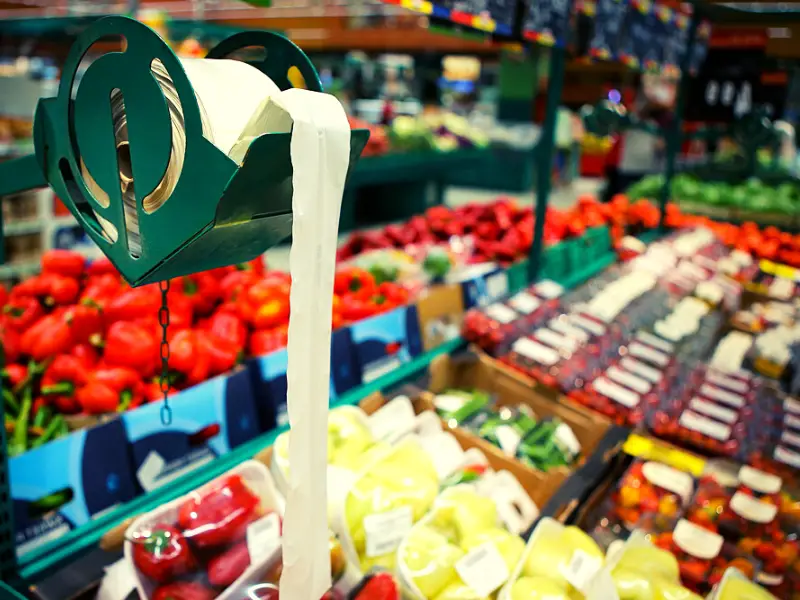
But what do you need to know about compostable bags? We go into detail about this product that could work well in the current market.
What Are Compostable Bags?
When exposed to bacteria or other living organisms, compostable PLA (polylactic acid) bags decompose.
With proper levels of moisture, bacteria, oxygen, and heat, the bags, as well as any items that have been placed inside them, will compost.
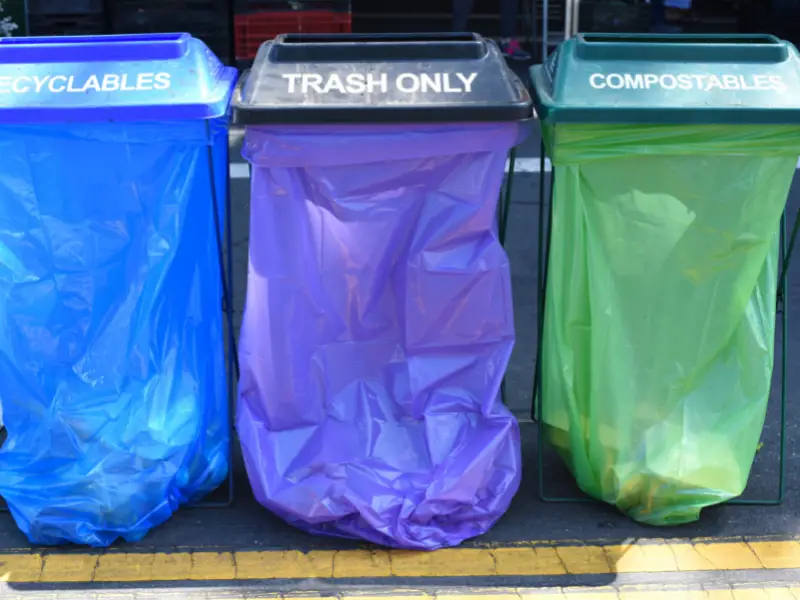
Compostable Bags Theory
In theory, bags labelled as ‘compostable’ are made of vegetable materials such as potato or corn starch, which will completely decompose once exposed to air and water. But the fact is it needs proper conditions to decompose; unfortunately, the temperatures and conditions are not enough in a home compost situation. So decomposing is done in a centralized composting facility where the compost is guaranteed to attain high temperatures.
Compostable household bags have a seedling logo mark, meaning it’s been approved by the Composting Association of the United Kingdom (CAUK).
Some retailers use these compostable bags as solutions to landfill problems. Sceptics claim that the vast majority of biodegradable packaging will be disposed of in the regular waste stream and emit methane as it degrades, just as it would with any other organic matter in a landfill, resulting in increased greenhouse gases.
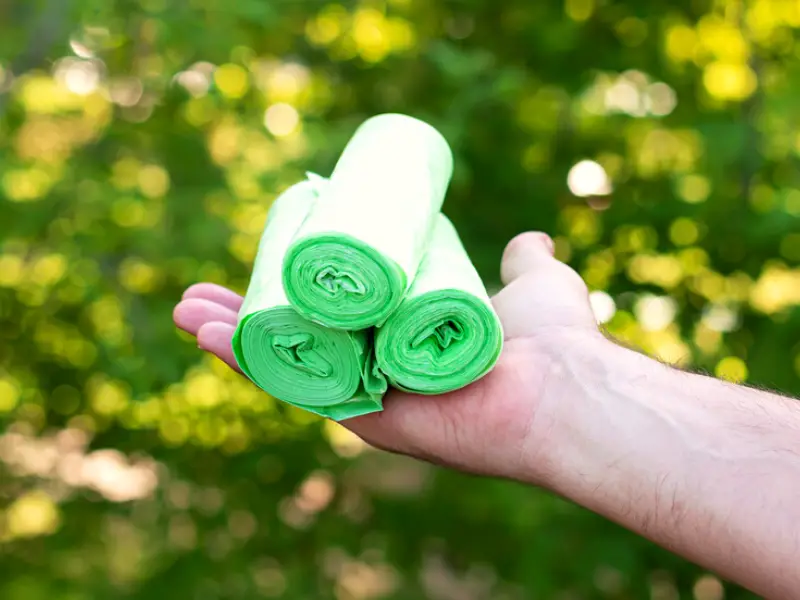
Furthermore, if biodegradable packaging is placed in the recycling stream, it can contaminate all the other materials, resulting in the entire batch being unable to be recycled.
Another thing that people don’t like about compostable packaging is that it encourages people to keep consuming and rely on recycling, instead of cutting down on the amount of waste made in the first place. It’s always better to cut down consumption and reuse things instead of recycling.
What Do Compostable Bags Mean for Your Business?
Compostable Bags Save Money
About 3.2 million tons of waste is sent to landfills every year that could be diverted into compost. If you own a bar or another business that generates a lot of food waste, tossing it in the garbage might cost you thousands, tens of thousands, or even more in waste shipment expenses.
By eliminating plastic waste and establishing a commercial organic recycling program, you can immediately reduce your monthly waste management costs. Organic wastes are pretty wet, which adds to the overall weight of the trash. Many companies can assist you in properly sizing your trash and maximizing its value by optimizing container size, selecting compostable bags, and limiting the frequency of pickups.
Compostable Bags as Brand Image
Compostable bags are a way of being environmentally conscious by using fewer resources and bettering your company’s image. Today, many customers value and choose businesses that protect the environment.
According to a Nielsen worldwide online survey, around 51% of Baby Boomers will pay more for products and services from businesses dedicated to social and environmental change. If you’re looking for strategies to boost earnings and positively impact your bottom line, starting with biodegradable bags and publicizing your organization’s green activities may be an excellent place to start.
Reduce the Carbon Footprint of Your Brand
One of the most generally discussed benefits of biodegradable bags is the decrease of a brand’s carbon footprint. Unlike conventional plastic bags, compostable bags produce minimal carbon dioxide throughout the production process.
Biodegradable bags are manufactured from starches derived from plants such as corn or from PLA (Poly Lactic Acid), which is derived from plant sources. Both represent a shift from the usual petrochemical-based substance that is utilized in the manufacture of so many plastic-based items.
Composting is a decomposition process that occurs at a faster rate than normal.
Compostable items are those that, under proper conditions, are designed to be broken down by microorganisms into natural organic components, specifically compost, carbon dioxide, and water, as opposed to non-compostable products.
Compostable Bags Are Safer for the Environment
It’s always been an old story that a huge population of marine life is in danger due to discarded plastic bags. The key problem is that this plastic waste ends on beaches and shores and contaminates rivers and streams.
The other problem with plastic bags is that they never decompose. Although they break down into small pieces, this has a huge tendency to clog drains and sewers for then reaching the ocean where they become part of the food chain; and eventually getting back to our homes via seafood and even salt.
One of the most significant advantages of compostable bags is that it is compostable. Its contents can be decomposed and reintegrated into the soil naturally without generating harmful chemicals and damaging our oceans.
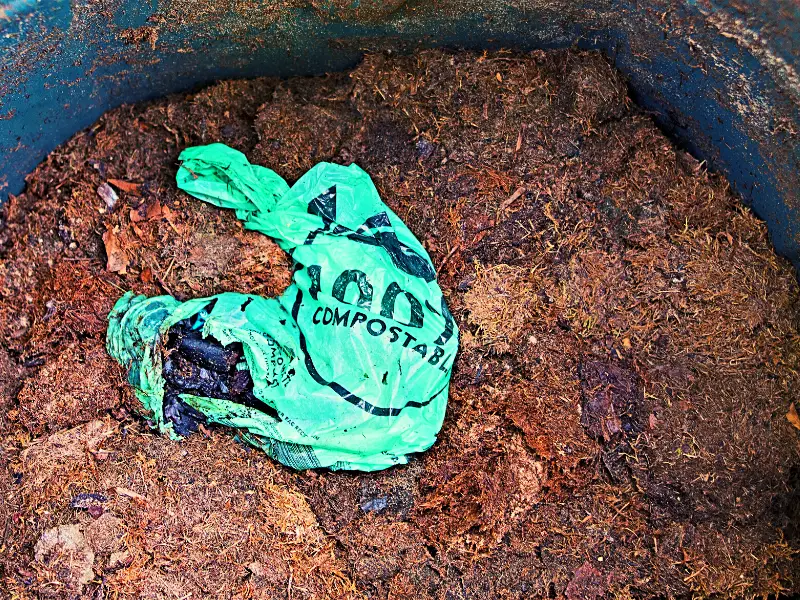
Compostable Bag Making Machine
A compostable bag making machine is a brand new manufacturing process and cutting edge technology. The compostable bag making machine consists of many different components, including a composter that decomposes all kinds of organic waste, a shredder for preparing the shredded materials and a compressing machine that makes the bags.
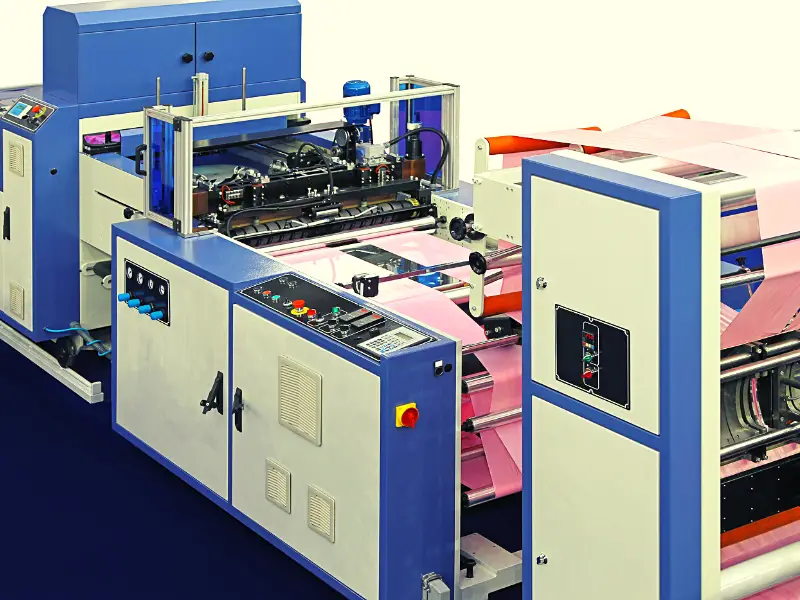
The mechanical structure of the system requires very little maintenance and is cost-effective. This means lots of profits for your business. The machine’s heat and cold resistance capability is superior, and all components operate at an average temperature with no problems whatsoever, which helps to guarantee long product life.
Eco Advice You’ll Love: Go Green and Save Money, Eco-Friendly Habits, Sustainable Glass
Author’s Note
Compostable bags are a revolutionary way of being environmentally conscious and eco-friendly with the help of other companies that focus on social and environmental change. There is a large market of customers who see value in companies that protect the environment for businesses. With this, comes increased earnings and a positive impact.
The only downside is that compostable plastics need to be processed by composting machines, which can present complications in the initial set-up but offset this by providing advantages such as long product life, superior heat/cold resistance, minimal maintenance costs, and increased profits for your business.


8 thoughts on “Compostable Bags and Their Environmental Impact: What You Need to Know”